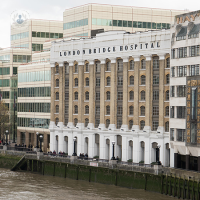Dismotilità
What is dysmotility?
Dysmotility is a condition in which the muscles of the digestive tract or the nerves that control them do not work as they should, meaning that the rate at which food passes through the digestive system and the rate at which waste is excreted is abnormally slow or irregular. Dysmotility can lead to some unpleasant digestive symptoms, such as constipation, bloating and cramping. The symptoms that appear depend on which part of the digestive tract is affected.
Dysmotility of the stomach is also known as gastroparesis.
Symptoms of dysmotility
Patients with dysmotility in the upper digestive tract (i.e. the oesophagus and stomach) may experience:
- Loss of appetite
- Weight loss
- Heartburn
- Upper abdominal pain, burning sensations or discomfort
- Nausea and vomiting
- Feeling full very quickly when eating
Dysmotility in the lower digestive tract (intestines) can cause:
- Lower abdominal pain
- Cramping
- Bloating
- Problems with bowel movements – this may be constipation due to slow movement of the intestinal muscles or diarrhoea if the trapped food has led to an overgrowth of bacteria.
Medical tests to diagnose dysmotility
- Blood tests can assess the level of malnutrition, anaemia and salt imbalance that may be caused by dysmotility. They may also be able to diagnose the cause of the dysmotility, e.g. diabetes, lupus, etc.
- X-rays – these can give the doctor a closer look at what is going on inside the patient and rule out mechanical obstruction.
- Motility/transit investigations
- Biopsy
What are the causes of dysmotility?
Dysmotility is caused by dysfunction in the nerves and/or muscles in the organs that make up the gastrointestinal (GI) tract. This may be caused by an underlying illness, such as:
- Systemic lupus erythematosus
- Amyloidosis
- Neurofibromatosis
- Parkinson's disease
- Diabetes
- Scleroderma
- Thyroid disorders
- Muscular dystrophies
Dysmotility can also be caused by certain medications and inflammatory conditions such as coeliac disease can also cause a certain degree of dysmotility.
In other cases, there is no known cause, and dysmotility is the primary diagnosis. Examples include:
- Achalasia – a dysmotility disorder of the oesophagus
- Gastro-oesophageal reflux disease (GORD)
- Gastroparesis – delayed emptying of the stomach
- Functional constipation
- Functional diarrhoea
- Irritable bowel syndrome (IBS)
Treatments for dysmotility
The treatment depends on the type and cause of the dysmotility. First, a mechanical blockage must be excluded.
Many causes of dysmotility cannot be cured, meaning that treatment is focussed on the symptoms rather than the cause. This may involve dietary changes, medications to stimulate intestinal movements, hospital visits for decompression of the stomach, or, in some cases, surgery may be needed.
Which type of specialist treats dysmotility?
Gastroenterologists generally diagnose and treat dysmotility, while surgeons will be involved if surgical intervention is needed.







